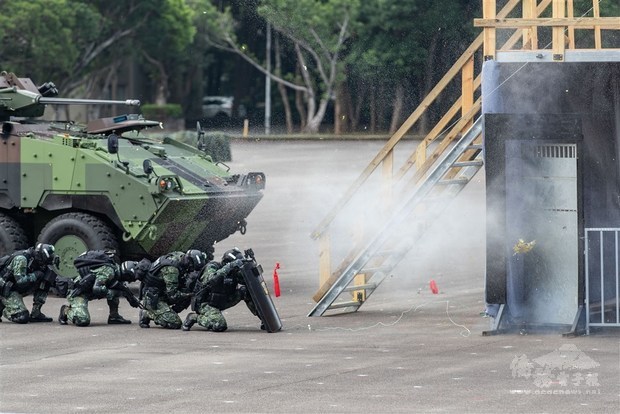
Tokyo, July 14 (CNA) The military balance in the Taiwan Strait is tilting in China's favor, and the gap is widening as the Chinese military modernizes its arsenal, according to an annual defense white paper released by Japan's defense ministry Tuesday.
Titled "Defense of Japan 2020," the white paper warned that "the overall military balance between China and Taiwan is shifting in favor of China, and the gap appears to be growing year by year," in its section on China's relations with foreign countries and regions.
The paper said China has been building and modernizing its military at an unprecedented rate, while Taiwan relies heavily on United States arms sales.
"While the United States has continued and reinforced its engagement in Taiwan, China has repeatedly expressed its strong protest against Taiwan's independence," it said.
The military threat has increased in recent months after President Tsai Ing-wen won her second term in January because of her administration's opposition to the "one country, two systems" model proposed by Beijing for cross-strait unification, it said.
Analyzing China's military strength, the white paper said its Army, Navy and Air Force all have significant advantages over its Taiwanese counterparts, both in quantity and quality.
Though the People's Liberation Army does not have enough amphibious assault forces to occupy Taiwan in a full-scale invasion at present, it has been significantly expanding its landing ship forces over the years for that purpose, the paper said.
Meanwhile, Taiwan is strengthening its asymmetric warfare capabilities amid the military threat from China by investing in developing and building its own military aircraft and vessels, including stealth corvettes, the paper said.
In terms of its air defense, Taiwan deploys PAC-2 and PAC-3 anti-ballistic missile systems bought from the U.S., but some analysts have cast doubt over the systems' capabilities to counter an air strike by Beijing, which boasts of a stockpile of thousands of mid-range ballistic missiles that can reach Taiwan, it said.
The paper said Japan will be keeping close tabs on the military buildup on both sides of the Strait, U.S. arms sales to Taiwan, and Taiwan's ongoing efforts to invest in indigenous weapon systems.